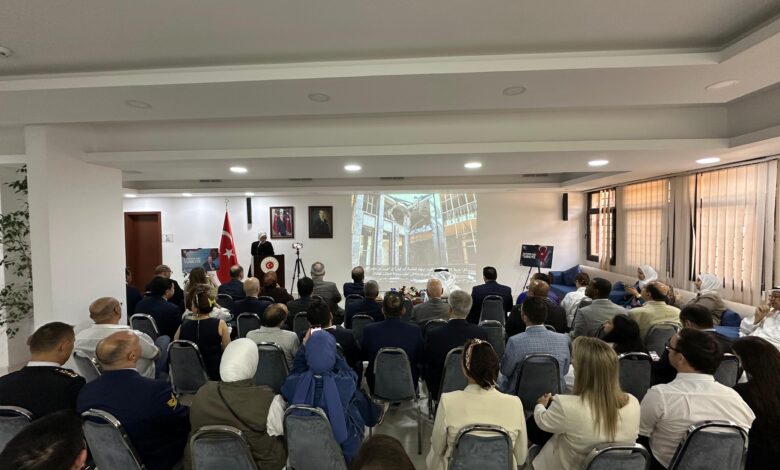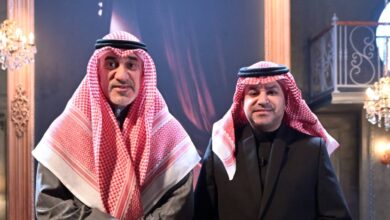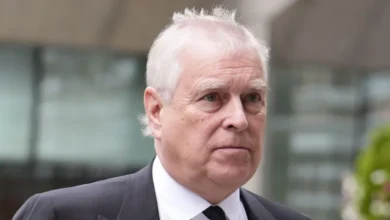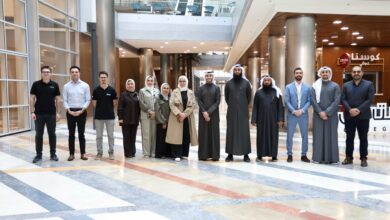Nine years since July 15, 2016 coup, Turkey stands tall — still guided by the spirit of that night
President Erdoğan’s visit to Kuwait rescheduled, expected later this year

The Times Kuwait Report
Turkish Ambassador to Kuwait, said the anticipated visit of Turkish President Recep Tayyip Erdoğan’s to Kuwait, has been rescheduled but a new date has yet to be finalized, said the Turkish Ambassador to Kuwait, H.E. Tuba Nur Sönmez.
However, she noted that coordination is ongoing to reschedule the visit, and said she is optimistic it will take place later this year, after the summer season.
Her remarks came during a press statement delivered on the sidelines of a commemorative ceremony marking the 9th anniversary of July 15 – Democracy and National Unity Day. The event was held at the Turkish Embassy on Monday morning (July 15), attended by Assistant Foreign Minister for International Organizations Affairs, Ambassador Abdulaziz Al-Jarallah, accredited diplomats, Turkish nationals, and members of the Kuwaiti community.

In her speech, Ambassador Sönmez praised Kuwait’s “clear and principled position in support of legitimacy” during the failed coup attempt in Turkey on July 15, 2016, emphasizing that such solidarity remains deeply appreciated by the Turkish people.
She also expressed her gratitude for the presence of fellow diplomats at the ceremony, describing the occasion as one “that matters not just to the Turkish people, but to all who value democracy.” She highlighted the strong and growing relations between Kuwait and Turkey, describing Kuwait as “a sincere and enduring friend” of her country.
Recalling the events of that fateful night, Ambassador Sönmez said, “Nine years ago, on the dark night of July 15, 2016, the Turkish people witnessed a betrayal that tested the resilience of our institutions and the spirit of our free nation. Tanks blocked streets, helicopters fired live rounds at civilians, and rogue elements bombed the parliament. Yet it was also a night of national rebirth—of unparalleled courage and unity in modern Turkish history.”

She squarely blamed the Fethullah Gülen Terrorist Organization (FETO), describing it as a “clandestine network that operated for decades under the guise of piety and educational service.”
Led by cleric Fethullah Gülen, based in the U.S., the group had infiltrated major Turkish institutions — including the military, judiciary, police, and civil service — through illicit means such as exam fraud, blackmail, and secret loyalty structures, she said.
“They posed as a charitable religious movement, exploiting the trust of devout citizens, while secretly indoctrinating youth in schools and prep centers to serve a darker agenda,” she added. “But on July 15, that plot was crushed under the feet of the Turkish people’s will.”

The ambassador emphasized that the coup attempt was not merely a military uprising, but a calculated internal assault on democracy aimed at replacing the rule of law with sectarian tyranny. Fighter jets bombed strategic sites in Ankara, and armed soldiers opened fire on peaceful civilians. Media outlets were raided in an attempt to silence the press, and the president himself was targeted in an assassination attempt.
“What was meant to break the spirit of the nation, instead gave it new strength. Unarmed citizens took to the streets in defiance, challenging tanks and reclaiming sovereignty. Turks from all political and ideological backgrounds stood together for democracy—and that unity became our greatest weapon.”
By dawn, the coup had failed—but at a heavy price: 252 lives lost, over 2,200 injured, and shattered buildings where dreams once lived.
Turkey did not descend into chaos, Sönmez stressed. The state responded swiftly and within the legal framework to dismantle FETO’s networks, reform public institutions, and restore transparency. Security agencies were restructured to better align with national interests.
She added that the years since the coup have seen significant progress in political stability, self-reliance, and assertive foreign policy, driven by the lessons learned on July 15.
“The trauma of that night awakened a heightened civic consciousness. Turks today are more aware of the importance of defending democracy against anti-democratic threats.”
“Nine years later, Turkey stands tall — still guided by the spirit of that night. The message of July 15 is not a memory of the past; it’s a living force. As long as that spirit endures, no darkness can overcome the will of the Turkish people,” Sönmez concluded.












